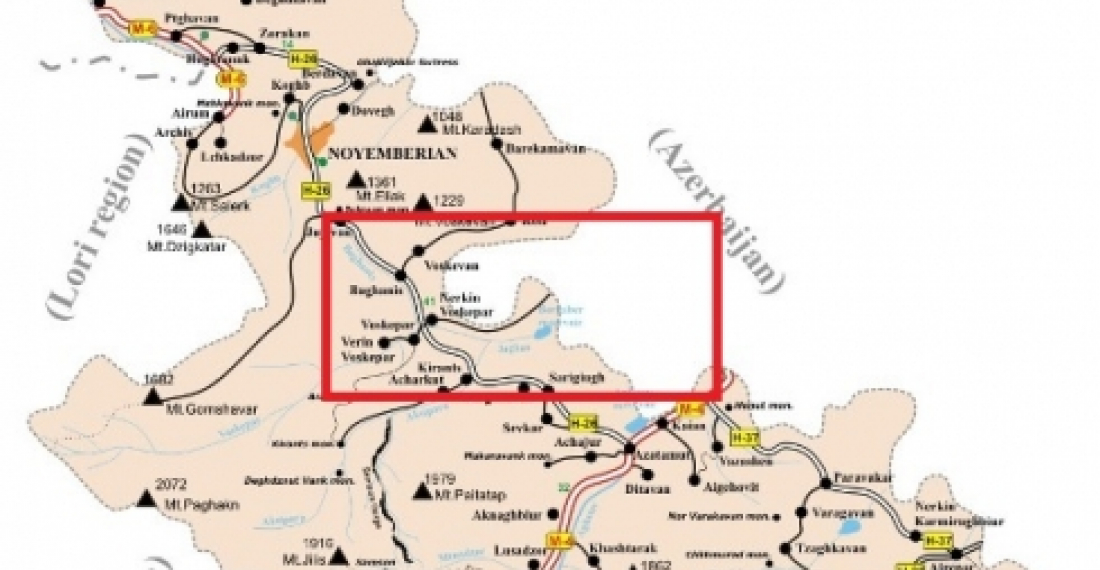Reports that Azerbaijan is constructing a military road close to the Armenia-Azerbaijan inter-state border are causing concern in Armenia. The daily newspaper Zhoghovurd (People) raised the issue in a report that claims that a red-coloured excavator operated by the Azerbaijani armed forces is constructing a new strategic road at the border area, parallel to the road on the Armenian side conmecting Voskevan and Baghanis villages in Armenia's Tavush Province.
"The red excavator continues its black deed; this unpaved road is dug out ahead of the Azerbaijani [military] positions", the newspaper claimed, as reported by news.am. "There are concerns that with this road, which starts from the Azerbaijani Aşağı Askipara, the Azerbaijani armed forces could transport heavy equipment and later bomb the Ijevan-Noyemberyan motorway [of Armenia], which is a part of the Armenia-Georgia interstate road," stated the Zhoghovurd.
Whilst the area is far away from the Nagorno-Karabakh conflict zone, there have been regular reports of incidents in the area, including at least one incident in which traffic on the main highway was disrupted because of military activity. A few days ago the Armenian Defence Minister visited the Tavush region and inspected military facilities close to the area in question.
In December 2013, following incidents in the area, it was reported that Armenia was constructing by-pass road in the intersection Tsaghkavan-Itsaqar-Gandzaqar of the Aygehovit-Vazashen-Paravaqar-Aygepar close to the where the new road on the Azerbaijani side is now being constructed. The Armenian news agency Mediamax at the time reported that the by-pass road is 3.8 kilometers long and cuts through forest land.
The Armenia-Georgia interstate highway is a major strategic lifeline for Armenia. With its borders with Turkey closed, and being in a state of war with Azerbaijan the land connections with Georgia are considered vital. If open conflict was ever to resume between Armenia and Azerbaijan it is likely that this area will be the scene of significant fighting. For the moemnt, it is the civilian communities on both sides of the frontier that are bearing the costs of the incidents that occur from time.
source: commonspace.eu
Photo: A map of the Tavush region of Armenia, highlighting the area around the part of the Armenia-Georgia inter-state highway connecting Voskevan and baghanis villages. (Map courtesy of TA Central.com).







